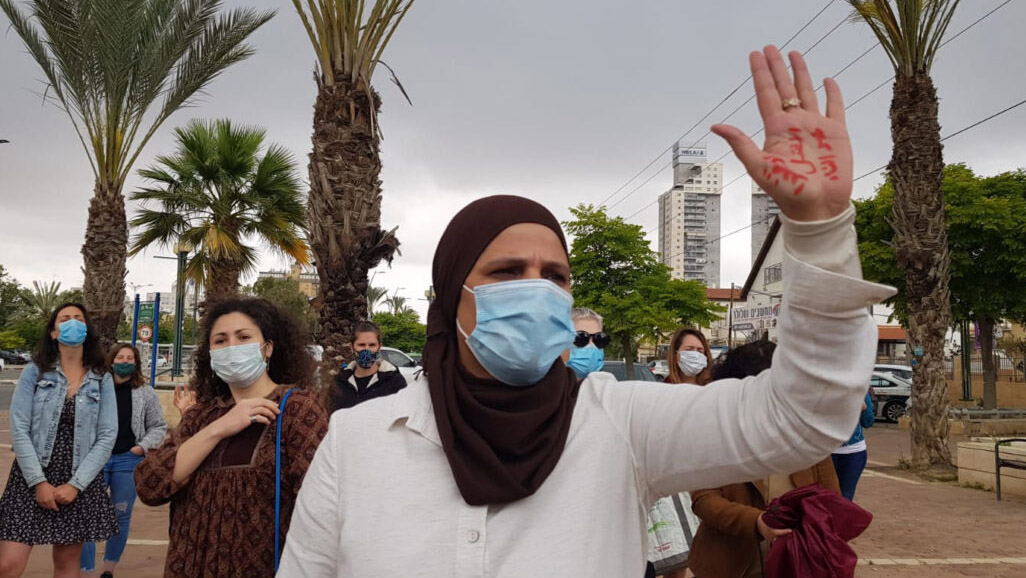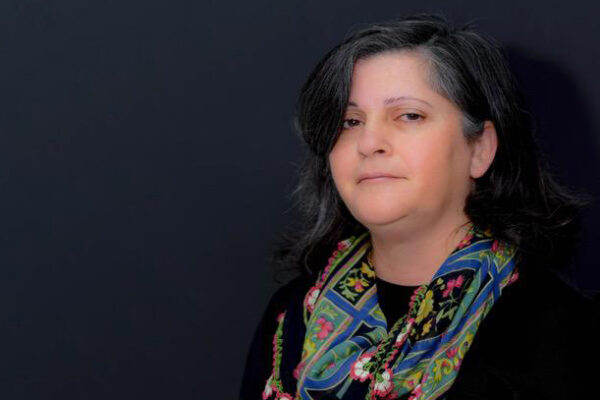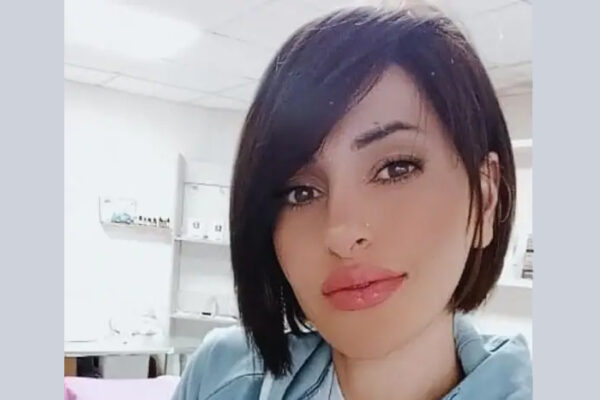
Fifty-eight percent of the women murdered in Israel last year were Arab, but Arabs make up 84% of the women whose murders were not solved, according to a new study by Women Against Violence.
Naila Awad, director of Women Against Violence, spoke with Davar about the implications of the new research.
“The study shows the racist and discriminatory attitude in the way the police and the justice system handle things,” Awad said.

The study, which was conducted by Shirin Batshon, analyzes murder rates and police responses starting in 2008. The study reveals numerous gaps between police response to violence against Jewish and Arab women. For example, of the women who made complaints to the police leading up to their murders, 73% were Arab.
According to Awad, only 56% of the murders of Arab women ended with indictments, compared to 94% in the murders of Jewish women, and in only 34% of the cases were convictions compared to 75% in the murders of Jewish women.
Awad describes these discrepancies as revealing both gender discrimination and racism, but said that ultimately, the story they tell is about racism.
“When we asked to collect the information, the first answer we would get was that this information isn’t published so as not to label Arab society,” Awad explained. “So there was no data breakdown by Arab women vs. Jewish women. Just searching Google could get you all the information about Jewish women. It took us a year and a half to get the information. In the end we received, under a court order, partial material from 2013 onwards.”
Many of the findings shocked Awad.
“Sixty-four percent of the criminals, the murderers, are still walking free, she said. “There are cases from 2015 that are still in the process of prosecution, even though there is an indictment. It’s incomprehensible.”
“The state does not want to find the truth”
The study found discrimination against Arab women from the courts as well as the police. Murder of an Arab woman resulted in an average sentence of five and a half years, while murder of a Jewish woman led to an average sentence of between 14 and 18 years.
“In the case of Samahar Khatib from [the Arab city of] Tamra, there was an attempted murder,” Awad said. “Her ex-husband came to her house, stabbed her nine times and ran her over. An indictment was filed for grievous bodily harm rather than attempted murder.”
This light charge comes in stark contrast to the charges filed against those who enact violence against Jewish women.
“In the case of Shira Isakov, [the assailant] was given 24 years for attempted murder,” Awad explained.

“In the case of Khatib, the police said that they were not able to recover the knife and the car,” Awad said, incredulous. “They are not interested in finding the truth. In Tamra, they got to the [security] cameras after three or four days. People had already deleted the recordings.”
The disinterest on the part of the courts and the police in addressing the murders of Arab women is all the more concerning given the serious problem of violence, and specifically violence against women, in Arab society.
“The criminal world, which controls Arab towns, has also entered the realm of domestic violence. Women have been murdered by hired killers,” Awad said.
Awad called attention to the murder of Rasha Satawi in the Arab city of Maghar last November. The murder, she explained, “was committed by a hired killer. Who ordered the killer? It’s the police’s responsibility to find out. It also happened in the case of Nasrin Musrati, where three defendants were convicted. The police claim to be totally ignorant. That’s the policy.”

“We want professionalism, not ‘cultural sensitivity’”
“You cannot just relate to women as victims of violence within relating to their social status,” Awad said. “We are discriminated against as Arab women. We are part of a patriarchal society. We fight against the values of that society. The balance of power needs to be shaken up. We are part of a national minority that is discriminated against in legislation like the nation-state law and the citizenship law.”
Awad expanded on some of the specific problems women in Arab society face.
“We are opposed to polygamy, which is also a criminal offense that the state does not concern itself with,” she said. “The rights of the second wife and the third wife are violated because they do not have a legal status. They suffer violence because their status is unregulated. When they come to us, we have to arrange for them individual social security. They are not registered with the bank or the education system. It harms children.”
“The policy of demolishing houses also hurts women more,” Awad explained, referring to the Israeli policy of demolishing houses of suspected terrorists and demolishing homes built without proper permits.
“A woman is at home for many more hours than a man, and she loses her home. She has no roof. She has nothing. What can you expect from a woman like that who suffers violence, that she will go to the same police who were there protecting the bulldozer that destroyed her house?”
According to Awad, the problems of violence against Arab women are connected to, but not fully explained by, the general issue of violence in Arab society.
“Violence against women, [organized] crime, and street violence are separate systems,” she said. “Each niche should be addressed separately, but they do affect one another. The [general] level of violence does have a direct impact [on violence committed against women.] Take for example the use of weapons. 60% of homicides were committed by use of firearms. The proliferation of thousands of unlicensed weapons affects the personal safety of every man and woman.”
Some understand violence against Arab women to be a result of Arab cultural tendencies, but Awad rejects that framework.
“We do have a patriarchal society, one that we are resisting,” she said. “But it is unacceptable to believe that there has to be ‘cultural sensitivity’ in dealing with the problem. What would ‘culturally adapted treatment’ even mean? For thirty-five years we have been resisting these patriarchal values, so today a professional needs to think of a culturally appropriate plan?”
Awad explained how a “culturally sensitive” approach can actually function as a cover for the state to advance its own goals.
“Young women are afraid to talk about harassment in demonstrations because their parents will forbid them from participating in demonstrations,” she said. “So no one makes an official complaint, but they do talk about it.
“When a 24-year-old woman is summoned for questioning, the summons is directed to her father, who will bring his daughter in. In Jewish society, this does not happen. But that’s what they did during the violence in May [2021]. What’s happening is the exploitation of the patriarchal tools of society. The father will be scared and argue with his daughter. The goal is to bring the women back to their homes.
“This is what it looks like for society’s customs to be maintained,” she continued. “Patriarchy is used as a means of entrenchment. We do not accept being treated in a ‘culturally sensitive’ or ‘culturally adapted’ way. Just be professional.”
This article was translated from Hebrew by Leah Schwartz.






